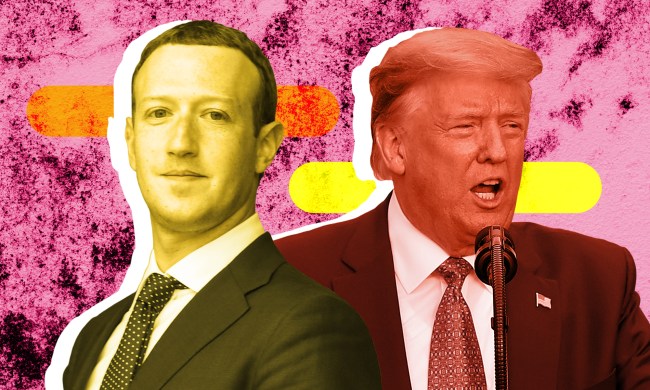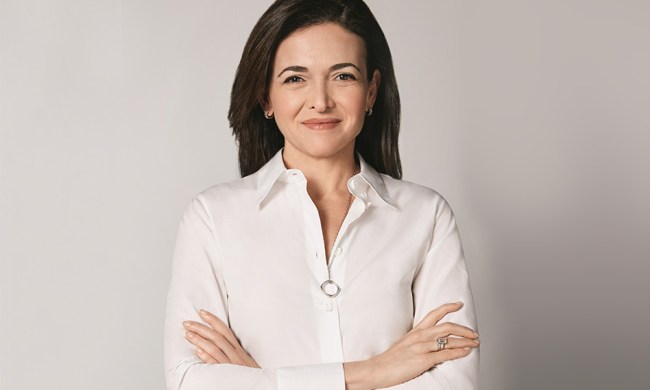Facebook’s ad revenue is around $70 billion annually, according to Reuters. The social media site’s reach and power are so great that most advertisers can’t help but incorporate Facebook into their campaigns. But on July 1, a group of activists, backed by major brands, is mounting an initiative to change that with a one-month boycott of advertising on the platform.
Since the announcement of the boycott, Facebook’s stock has already dropped by $56 billion in value. The intended effect has already taken hold. The question now is, what happens after July?
The boycott was organized by such major civil rights groups as the NAACP, and signed on to by more than 400 brands, including several massive names. Microsoft, Coca-Cola, Starbucks, Ford, and Target are just a few that have announced they will be pulling their ads from the platform for the month of July, all over objections to how the social media and advertising giant has handled issues of hate speech, targeted harassment, and misinformation.
“This exodus signals that the platform is not stable, from a reputation point of view.”
According to People Magazine, even megawatt celebrities Prince Harry and Meghan, Duchess of Sussex have helped push the campaign forward behind the scenes.
“Facebook is a behemoth,” said Nic Allum, senior vice president of strategy, culture, and influence at the brand consulting firm The Projects*, whose client list includes Target. “But this exodus signals that the platform is not stable, from a reputation point of view.”
Do we really need Facebook?

What this month is intended to do, activists said, is not only force a reckoning within Facebook, but also motivate major brands and advertisers to take a look at their own marketing strategies and ask “do we really need Facebook?” The answer to that question will determine whether users will see big brands’ ads creeping back into their feeds on August 1 or not.
Jessica González, the co-CEO of Free Press, one of the nonprofits leading the charge, told Digital Trends that it will be interesting to see who returns to Facebook and who doesn’t after July. “I salute and appreciate those who are saying, ‘this is a mess; we’re not coming back,’” she said. “We don’t need a forever promise from [the participating brands] to abandon Facebook for this to work. We will have to remain vigilant.”
“When brands are sensitive to reputation and brand safety, and they want to differentiate on ethics, pulling out of a company like Facebook would send a message.”
Yes, avoiding the massive advertising platform that is Facebook will be a disruption for companies. But Nandini Jammi, the co-founder of the influential social media activism organization Sleeping Giants, which has also helped promote the boycott, told Digital Trends that a lot of companies had already seen their plans disrupted by COVID-19 and the Black Lives Matter protests.
“Facebook has always been the easy option when it comes to running ad campaigns, but there are still plenty of effective ways to connect with niche audiences and segments outside the platform,” she said in an email. “If anything, this is an opportunity for businesses to show their customers that they share the same values as them.”
The ubiquity of Facebook in the advertising realm is exactly the reason why the campaign matters, said Richard Wilson, the director of the U.K.-based Stop Funding Hate, which is also backing the movement. “The same tools that have proved so useful to advertisers have also been manipulated by people with a more toxic agenda — most notably in the horrific genocide in Myanmar,” Wilson told Digital Trends. “No respectable, mainstream company wants to be associated with these kinds of extreme problems.”
Dr. Michelle Amazeen, associate professor of mass communications, advertising, and public relations at Boston University, told Digital Trends in an email that the July boycott is a “foot-in-door technique” — it’s easier to get brands to participate if it’s for a finite amount of time. But that doesn’t answer the question of what happens on August 1.
“Do Eddie Bauer and Honda return in August? … It’s too early to tell right now,” she wrote. “Of course, racism and sexism go beyond social media platforms. We can also look to see which of these brands have diverse leadership and employees, as well as policies that are antiracist and promote equity. Without such, the boycott seems disingenuous.”
What are you prepared to do?

In response to its precipitous drop in its stock, Facebook has released a string of statements in the last days of June to shore up its image as a progressive partner that takes hate speech seriously. For starters, the company announced it had banned a network of so-called “boogaloo” groups — people looking to incite a race war in the U.S. Facebook also announced it had signed the European Commission’s code of conduct on countering illegal hate speech online, and that it had managed to assess 95.7% of hate speech notifications. COO Sheryl Sandberg penned a note about how Facebook was committed to supporting Black-owned business and communities, and CEO Mark Zuckerberg himself posted about how committed Facebook is to connecting people with valid and reliable information about how to vote.
“Business, brands, agencies — they’ve all been conditioned to understand that they can’t exist without Facebook, and I think that’s dangerous.”
When asked by Digital Trends whether Facebook would be responding to the stipulations laid out by the “Stop Hate for Profit” campaign, or whether there were any concerns about revenue, a Facebook spokesperson pointed the reporter to a new post on the Facebook Newsroom that was penned by Nick Clegg, Facebook’s senior vice president of global affairs and communications. In it, Clegg claims that Facebook does not profit from hate, touts the progress the platform has made in combating hate speech, and highlights its work with the civil rights community in doing so.
At a time when many corporations are posting black squares on Instagram or verbalizing commitments to greater diversity in the wake of Black Lives Matter, one group called Detox Facebook, which has helped lead the charge, told Digital Trends, it only makes sense to abandon the Facebook ship.
“It’s hypocritical to come out with these statement and then pour ad money into a company like Facebook, whose actions are antithetical to the principle of a movement like Black Lives Matter,” said Detox Facebook activists, who wanted to remain anonymous for professional reasons. “When brands are sensitive to reputation and brand safety, and they want to differentiate on ethics, pulling out of a company like Facebook would send a message.”
Allum, for one, is confident that for at least some of the bigger brands participating, the boycott could be a good chance to start fresh and work toward a Facebook-free advertising future. “Business, brands, agencies — they’ve all been conditioned to understand that they can’t exist without Facebook, and I think that’s dangerous,” said Allum. “There’s got to be a new road map. It takes creativity and tenacity and focus and hard bloody work to change an approach. But we were able to adapt to quarantine within the space of days. It’s a simple question: What are you prepared to do?”
Note: The author of this piece worked as a third-party contractor for Facebook from February to April 2015.



